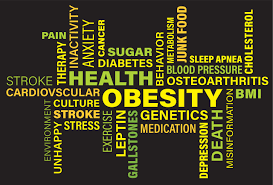Note: This article does not constitute medical advice. Please consult with your doctor before making any decisions regarding your health
Metabolism is the way in which your body converts energy and nutrients into a form that can be used by cells for various functions. It also breaks down complex carbohydrates and fats to release energy or store them as needed. A disturbance of this process can lead to obesity and diabetes.
Metabolic syndrome is a combination of several disorders that are linked with an increased risk of heart disease and stroke. What are these conditions?
The term "syndrome" refers to any group of symptoms that occur together in order to have an effect on your body. When you suffer from several different syndromes at once, they're called comorbidities.
What is Metabolic Syndrome?
The name itself may be difficult to understand if you don't know how to pronounce it properly. However, there is no doubt about its importance when it comes to the treatment of cardiovascular diseases.
In short, metabolic syndrome (MS) can be defined as having three separate factors which all tend to work against each other -- namely obesity, hypertension, and abnormal glucose metabolism (diabetes).
If left untreated without proper management, these three factors could eventually lead to serious complications such as stroke, kidney problems, eye disorders, nerve damage, sleep apnea, liver failure, dementia, etc.
Causes of Metabolic Syndrome
Well, there are many possible explanations but most often than not, it results from poor lifestyle choices combined with genetic predispositions. Some people might even inherit certain physical characteristics that make them more susceptible to developing metabolic syndrome.
But regardless of where it stems from, the end result is always the same -- increased risks for heart attacks, strokes, kidney problems, vision issues, type-2 diabetes, Alzheimer's, Parkinson's, dementia, cancer, osteoporosis, depression, anxiety, arthritis, chronic fatigue, autoimmune disorders, infertility, miscarriages, etc.
On top of that, medical professionals estimate that up to 60% of adults who live today will develop metabolic syndrome within their lifetime! This means that we need to take notice and start doing something right away so our chances of living healthy elevates.
Let's begin with learning how metabolic syndrome works.
How does this happen?
When talking about metabolic syndrome, there are actually two main components involved that cause harm to our bodies -- insulin sensitivity and inflammation. These two things have been linked to many other illnesses including cardiovascular diseases.
Basically, both of these elements affect our ability to use sugar efficiently for energy purposes thus leading to excessive weight gain.
While insulin plays an important role in regulating fat storage, too much of it has negative effects because it leads to low HDL ("good") cholesterol levels. On the other hand, elevated levels of C-reactive protein (CRP), a marker of inflammation, can trigger coronary artery plaque formation that ultimately blocks arteries resulting in a heart attack.
As mentioned earlier, these are just two examples of harmful side effects that are associated with metabolic syndrome.
There are others as well like fluid retention, excess uric acid production, memory loss, muscle weakness, erectile dysfunction, bone mass reduction, etc.
Treating Metabolic Syndrome via Diet and Exercise
Lifestyle Changes
If you want to improve your overall health while reducing your chance of suffering from metabolic syndrome, you should consider making some changes to your daily routine.
-
Increase Physical Activity Level By Taking Regular Walks Outside Your House
Walking outside instead of driving whenever possible is a key lifestyle change. Walking helps boost circulation throughout the entire body and improves lung capacity. You'll feel less stressed out afterwards since walking outdoors allows humans to connect with nature again.
Strolling is good for the heart and lungs, strengthens and tones muscles, burns calories, releases tension, lowers blood pressure, reduces stress, prevents constipation, relieves gastric pains, stimulates digestion, regulates heartbeat rate, boosts the immune system, lowers LDL ("bad") cholesterol level, enhances brain functions, and promotes relaxation, etc. You get the point here!
Take advantage of outdoor activities or go shopping alone. Either way, aim for 30 minutes per time. Repeat this activity 3 times a week.
-
Eat More Veggies & Fruit To Fight Obesity
Avoid eating refined carbohydrates (white flour products, white rice, candy, soda pop, potato chips, pasta, sugary foods, etc.), especially between meals. Instead, eat complex carbs (whole grain bread, brown rice, whole grains pasta, fruits, vegetables, legumes, etc.).
Complex carbs contain fibre and water, both of which help regulate digestive tract functioning. They also slow down gastric emptying and promote satiety thereby helping control calorie intake.
-
Drink Water Before Meals Rather Than Soda Pop Or Alcohol
Drinking sodas before dining makes us crave junk food later on. On the other hand, drinking lots of plain water before dinner can do wonders for appetite suppression. Another positive thing to note is that water contains zero calories. Thus, drink enough water after a meal to prevent overeating later. Try drinking 8 glasses of water before going to bed.
Then wake up early the next morning to continue the process. Eventually, you'll become accustomed to waking up early to stay hydrated. Once this habit becomes second nature, increase your total number of glasses to 12. Remember to avoid alcoholic beverages altogether.
-
Avoid Processed Foods At All Costs
Don't consume processed meats (hot dogs, bacon, lunch meat, frozen dinners, canned goods, fast foods, chocolates, ice cream, candies, desserts, etc.), soft drinks, etc., unless you enjoy stomachaches and diarrhoea due to bloating caused by undigested food particles.
-
Do Not Skip Breakfast:
Eating breakfast eases hunger cravings during subsequent meals and gives the body fuel for optimal functionality. Research shows that skipping breakfast contributes to weight gain over time. Skipping breakfast can also disrupt circadian rhythmicity which affects hormone secretion patterns and inhibits nutrient absorption.
Eat 5 small meals rather than 3 big ones, preferably every 4 hours. Consume plenty of veggies and fruit along with dairy, eggs, fish, poultry, beans, nuts, seeds, etc.
Drink green tea regularly. Green tea acts as a natural diuretic that aids in cleansing accumulated toxins from the kidneys. It also keeps the colon clean and free of parasites.
Go easy on coffee and alcohol consumption. Cut down on salt and saturated fats. Keep portions under control. Do not skip meals. Make sure to balance your meals. Please be mindful of what goes into your mouth.


